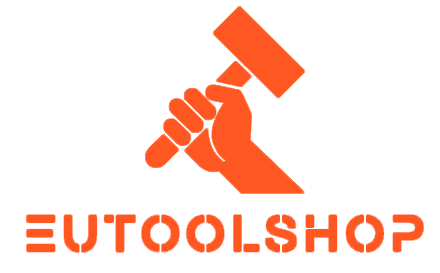In the world of precision grinding, selecting the right diamond wheel bond is crucial for achieving optimal performance, efficiency, and cost-effectiveness. At Eagle Abrasives , we pride ourselves on delivering high-quality diamond wheels tailored to meet the unique needs of various industries. In this comprehensive guide, we’ll explore the importance of diamond wheel bond selection, the different types of bonds available, and how to choose the perfect solution for your application.

Why Bond Selection Matters in Diamond Wheels
The bond in a diamond wheel acts as the glue that holds the diamond particles together. It plays a critical role in determining the wheel’s performance, including its cutting ability, durability, and surface finish quality. Selecting the wrong bond can lead to:
- Reduced Efficiency : Poor bond selection can result in clogging or premature wear, slowing down your operations.
- Poor Surface Finish : A mismatched bond may fail to deliver the desired smoothness or precision.
- Increased Costs : Frequent wheel replacements or rework due to subpar performance can drive up operational expenses.
To ensure maximum productivity and cost savings, it’s essential to understand the different types of bonds and their ideal applications.
Types of Diamond Wheel Bonds
At Eagle Abrasives, we offer a wide range of diamond wheel bonds, each designed for specific materials and grinding requirements. Here’s a breakdown of the most common types:
- Metal Bond
- Best For : Hard, dense materials like ceramics, carbides, and glass.
- Advantages : Metal bonds provide excellent durability and are ideal for heavy stock removal applications.
- Applications : Precision tool manufacturing, aerospace components, and semiconductor processing.
- Resin Bond
- Best For : Softer materials such as composites, fiberglass, and certain metals.
- Advantages : Resin bonds offer superior surface finishes and are less aggressive than metal bonds, making them suitable for fine grinding and polishing.
- Applications : Optical lens manufacturing, medical device production, and automotive parts.
- Vitrified Bond
- Best For : High-strength materials like hardened steel and superalloys.
- Advantages : Vitrified bonds combine the durability of metal bonds with the precision of resin bonds, offering excellent thermal stability and consistent performance.
- Applications : Gear manufacturing, turbine blade grinding, and industrial tool sharpening.
- Electroplated Bond
- Best For : Single-layer applications requiring high precision.
- Advantages : Electroplated bonds feature a single layer of diamonds embedded in a nickel matrix, providing sharp cutting edges and minimal dressing requirements.
- Applications : Cutting tools, dental instruments, and precision engineering.
- Hybrid Bond
- Best For : Versatile applications requiring a balance of durability and finish quality.
- Advantages : Hybrid bonds combine the strengths of multiple bond types, offering flexibility for diverse grinding tasks.
- Applications : General-purpose grinding, custom fabrication, and prototyping.
How to Choose the Right Bond for Your Application
Selecting the correct diamond wheel bond involves evaluating several factors, including:
- Material Being Ground
- Different materials require different bond aggressiveness and abrasion resistance. For example, carbide grinding typically requires a metal bond, while optical glass polishing benefits from a resin bond.
- Grinding Operation
- Consider whether your application involves rough grinding, precision finishing, or profiling. This will influence the bond type and wheel specifications.
- Machine Compatibility
- Ensure the diamond wheel is compatible with your grinding machine’s speed, power, and coolant system.
- Surface Finish Requirements
- If you need a mirror-like finish, opt for a resin or hybrid bond. For heavy material removal, a metal bond may be more appropriate.
- Cost and Longevity
- Evaluate the trade-off between upfront costs and long-term savings. While some bonds may have higher initial costs, they can deliver better value through extended lifespan and reduced downtime.
Why Choose Eagle Abrasives for Your Diamond Wheel Needs?
At Eagle Abrasives , we are committed to helping our customers achieve unparalleled results with our premium diamond wheel solutions. Here’s what sets us apart:
- Customization : We offer tailored solutions to meet your specific application requirements.
- Expert Support : Our team of technical experts is always ready to assist with bond selection and application guidance.
- Quality Assurance : All our products undergo rigorous testing to ensure consistency and reliability.
- Global Reach : With a robust distribution network, we deliver high-quality products worldwide.
Boost Your Grinding Operations Today
Choosing the right diamond wheel bond is a game-changer for your grinding processes. By partnering with Eagle Abrasives , you gain access to cutting-edge technology, industry expertise, and unmatched customer support. Whether you’re working with hard ceramics, delicate optics, or high-strength alloys, our diamond wheels are designed to deliver exceptional performance every time.
Ready to elevate your grinding operations? Contact us today at [insert contact information] or visit our website at [insert website URL] to learn more about our diamond wheel bond selection and other abrasive solutions.

